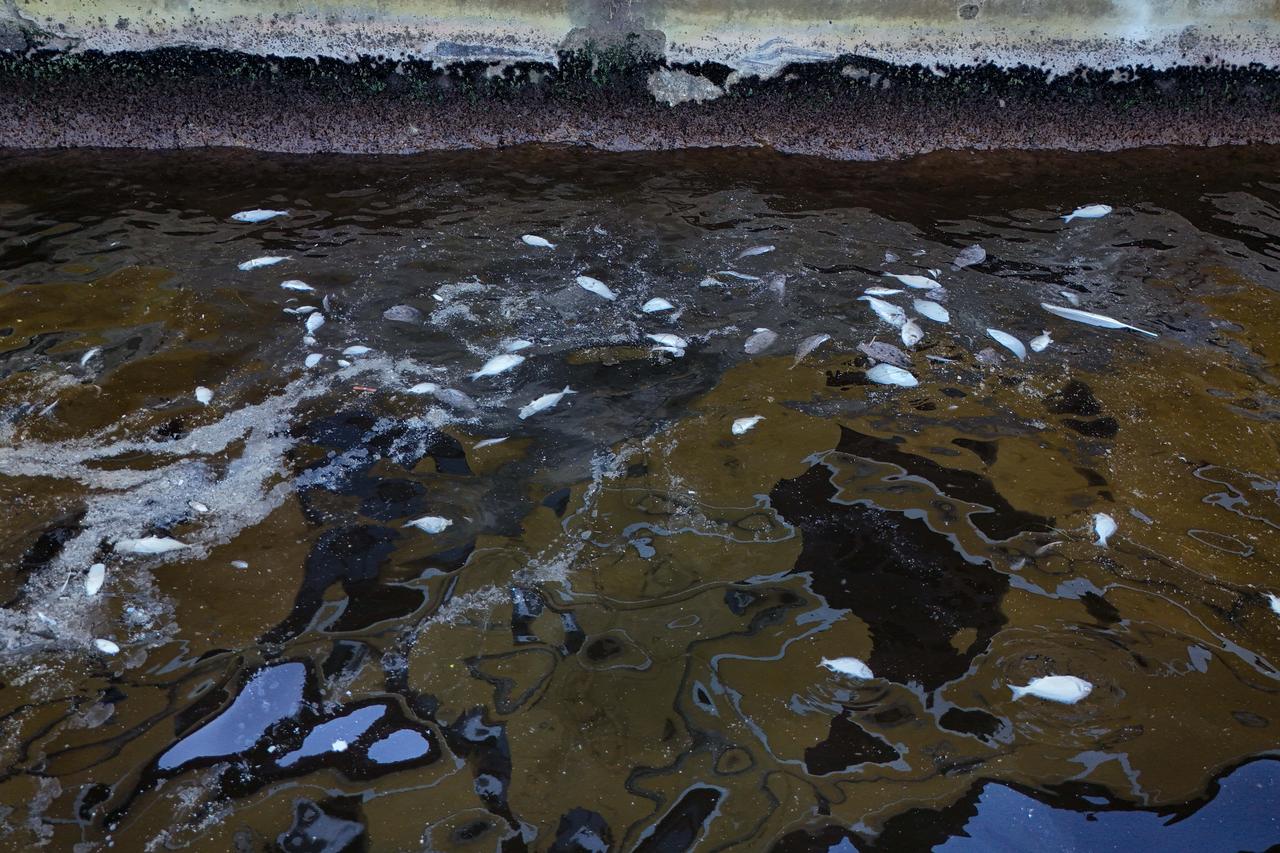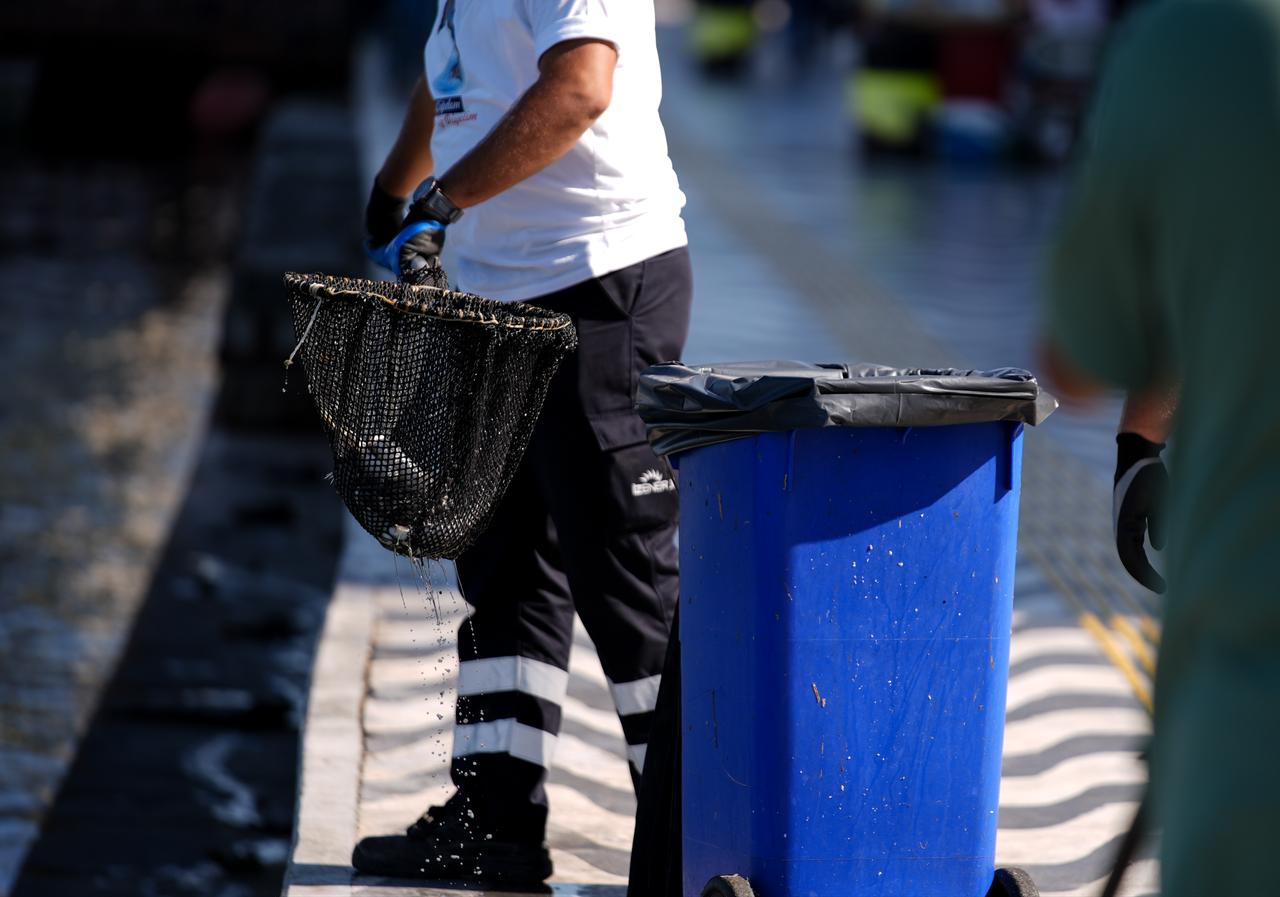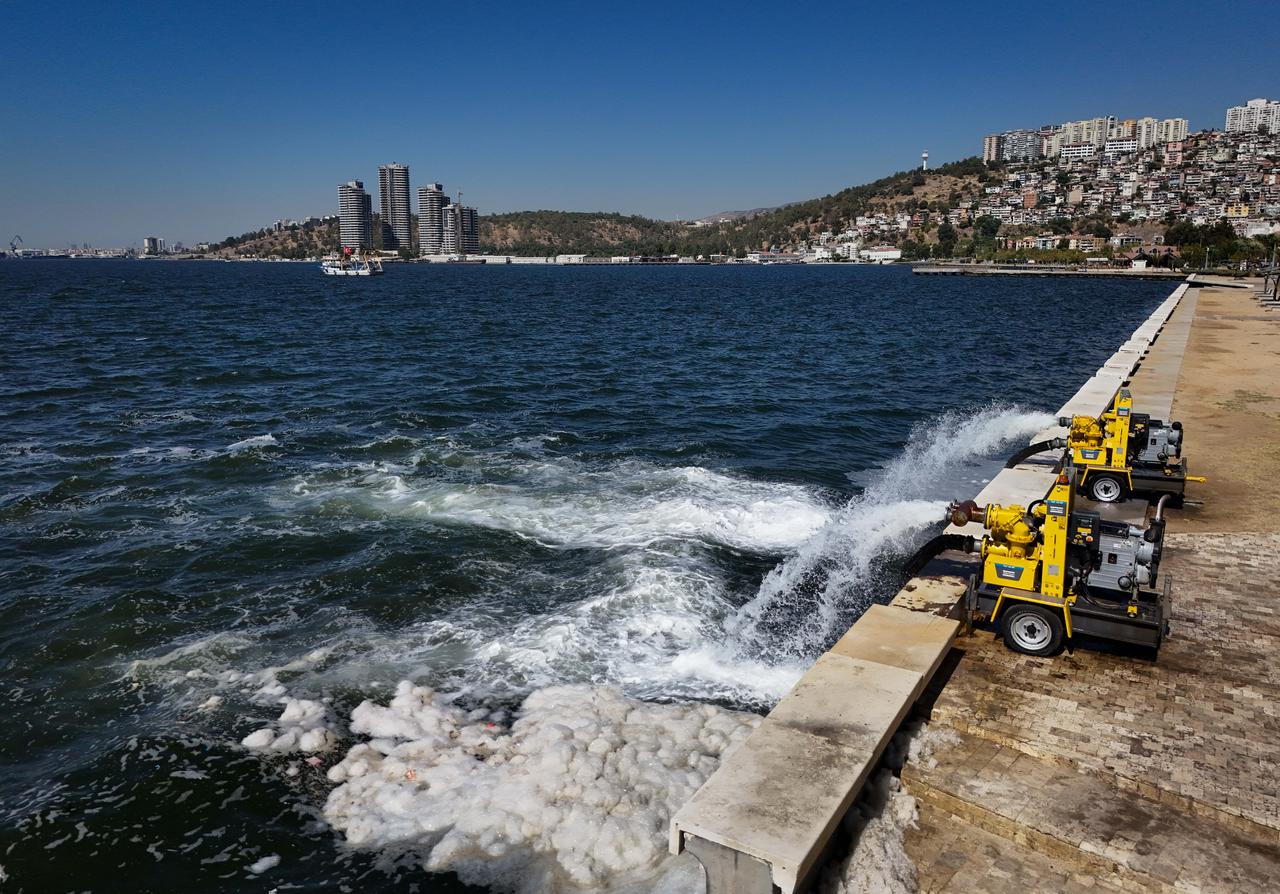
Izmir Bay is witnessing a troubling resurgence of fish deaths, raising alarm among residents and environmental experts. Since August, large numbers of dead fish have been washing ashore along the coastline between Pasaport and Uckuyular piers. Municipal teams have been mobilized to clear the affected areas, but the recurring phenomenon has intensified concerns about the bay’s ecological health and the effectiveness of previous cleanup and remediation efforts.
The recurring phenomenon has sparked growing concerns about the ecological health of the bay and the effectiveness of past remediation measures. Residents have reported foul odors along the coastline, which, on calm and hot days, can extend to neighborhoods such as Tepekule. Many locals have voiced frustration over the lack of effective action from municipal authorities.

Experts point to persistent pollution as the primary driver behind the die-offs. Dr. Ceyhun Ozcelik, head of the Water Resources Department at Mugla Sitki Kocman University, explained to Turkish media outlet Hurriyet, that Izmir Bay has been subjected to intense pollution since the 1980s, due to rapid industrialization, urbanization, and insufficient wastewater infrastructure.
“During periods of high temperatures and low water movement, nutrient overload leads to excessive algae growth,” Ozcelik said. “When the algae die, oxygen levels drop sharply, creating conditions that can suffocate fish. In addition, bacteria in polluted sediments convert sulfates into hydrogen sulfide, releasing foul odors along the shoreline.”

The affected areas are critical habitats for various fish species, particularly those that migrate between freshwater and seawater at different life stages. Anadromous, catadromous, and amphidromous species rely on the bay’s coastal zones for breeding and development. Poor water quality in these areas threatens their survival, while sudden drops in oxygen levels and disease outbreaks contribute to mass mortality events.
Municipal authorities have been actively addressing the immediate crisis by collecting dead fish and increasing oxygen levels in the water through specialized equipment. However, experts emphasize that long-term solutions require tackling the root causes.
“Preventing pollutant inflow into the bay and cleaning up the sediment on the bay floor are critical first steps,” Ozcelik said. “As river water quality improves and pollution is reduced, the bay can gradually recover through natural currents and self-purification processes.”